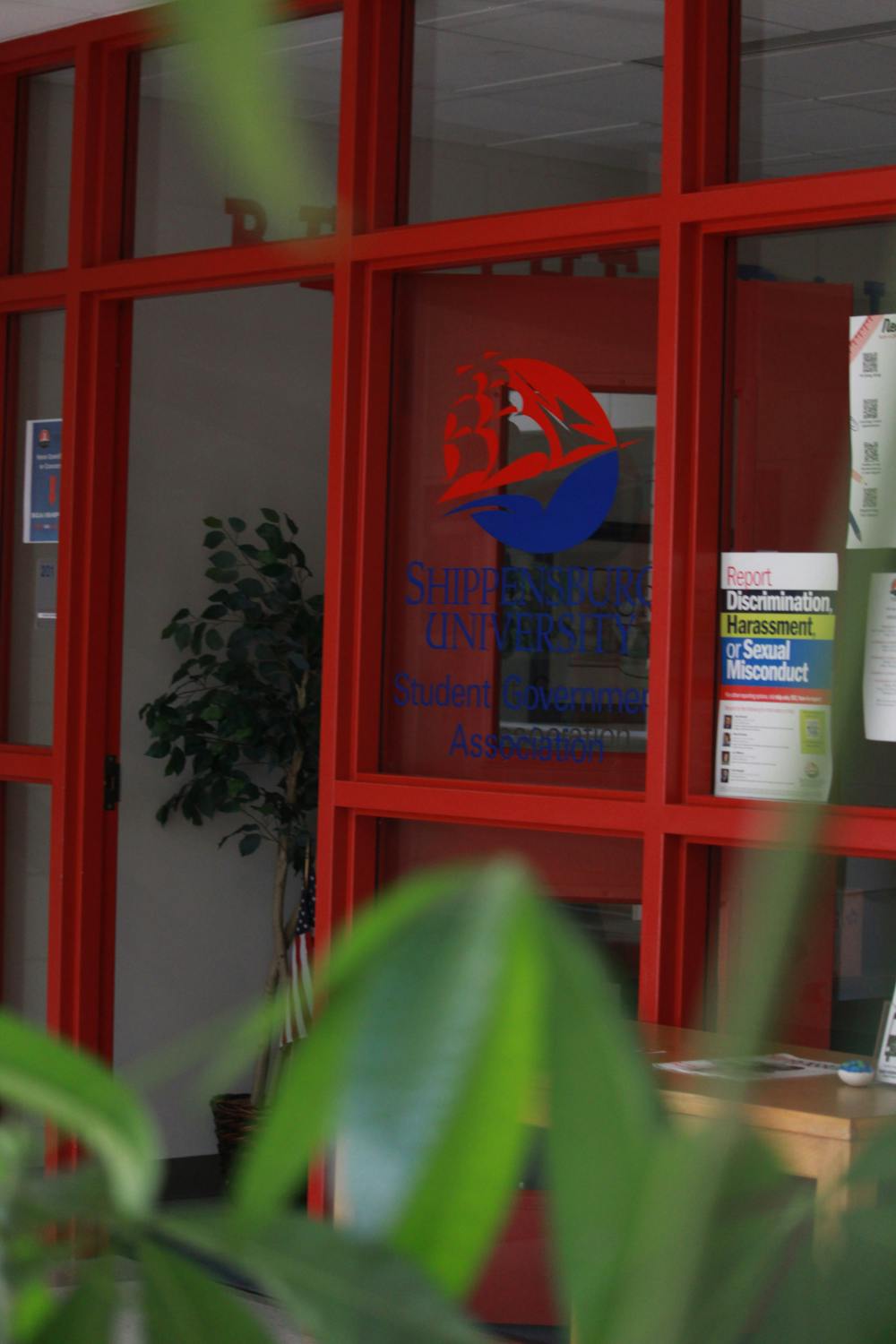Shippensburg University’s Student Government Association revealed its operating budget for the 2024-25 fiscal year Friday morning.
Student groups received a 32.72% cut, student organizations were cut by 22.14% and student media was cut by 13.85%. Smaller cuts were made to athletics and club sports — 8.45% and 5.61%, respectively.
Notably, performing arts received a 15.33% increase of $15,280. The marching band’s budget will grow to $79,400 from its current sum of $66,000; the concert band will get an additional $430, bringing its total to $12,430, and the woodwind ensemble will receive $540, increasing its budget to $2,140.
Student media was cut by 14% overall. The Slate saw an 11% cut, WSYC saw a 10.3% cut, SUTV saw a 32.8% cut and PRSSA saw a 53% cut. The overall budget shrank from $50,400 to $43,420.
For student organizations, the overall budget was cut 22% from $40,745 to $31,725. The National Council of Negro Women’s budget was decreased from $1,000 to just $290, Interfraternity Council was cut 57.75% from $2,000 to $845 and RHA was cut 14% from $11,000 to $9,460.
Several student groups requested a budget but received nothing. The Investment Club did not receive a budget this academic year but requested $2,316; Circle K requested $389, roughly half of its current budget; Tau Kappa requested $50; the Ski/Snowboard Club requested $2,040; and Phi Sigma Pi requested $3,350. None of these student groups received any money from SGA.
Circle K did not respond to emails from SGA in February regarding group membership and the Ski/Snowboard Club has applied to be a SUSSI-recognized group but has not yet been approved, SGA vice president of finance Katie Huston said.
Every group is examined individually and must meet certain thresholds — including having 15 members — to receive a budget, according to Budget and Finance Committee (B&F) member Ian Thompson. There are also a handful of items — graduation paraphernalia, food for internal purposes and transportation, among others — that SGA cannot fund as listed in the B&F standing rules, Huston said.
After SU administration approved an increase to the student activity fee on April 9, there is now $120,000 budgeted for additional allocations for the next fiscal year. However, because of the recency of the approval, any additional funds were not included in the initial budget decisions.
SU President Charles Patterson was willing to approve a $1 per credit increase in the student activity fee last year, but the Budget and Finance Committee was unable to agree in time to implement the change for the 2023-24 fiscal year.
Now that the change was approved, students will see an increase in the activity fee on fall 2024 bills from $23 to $24 per credit. Additionally, the 12-credit fee cap has been removed. Currently, a student taking 15 credits only pays $23 for 12 of those credits. Moving forward, that student would pay $24 for all 15 credits.
This change will not apply to graduate students.
Raising the fee will eliminate the deficit that has weighed on SUSSI for several years.
“Our proposed budget was complete and left us with a deficit of $140,951.00,” the budget summary said. “This increase allowed us to mend the deficit and bring back additional allocations and capital expenditures for our University Campus groups.”
The fee increase is expected to generate about $440,000 in revenue for Shippensburg University Student Services, Incorporated (SUSSI). After removing the deficit, SUSSI will have $120,000 in additional allocations, $80,000 in capital expenditures and $100,000 in deferred funds.
“The Budget & Finance Committee will work to create an option for SGA approved groups to receive additional allocation for the 2024-2025 year,” the budget summary said.
SGA has posted a QR code outside of its office for student groups and organizations to have one-on-one meetings about their budgets beginning April 22. The sign-up was also shared in an email sent by Interim SUSSI Director Kim Rockwell on April 12. This is an opportunity for groups and organizations to have a more personalized explanation of how their budget determination was made.
“A process for groups to apply for further allocations will be provided at a future date,” Huston said.
Public comments about budgets can be made at SGA’s final meeting of the academic year on May 2 at 4 p.m. in the CUB MPR.





The Slate welcomes thoughtful discussion on all of our stories, but please keep comments civil and on-topic. Read our full guidelines here.